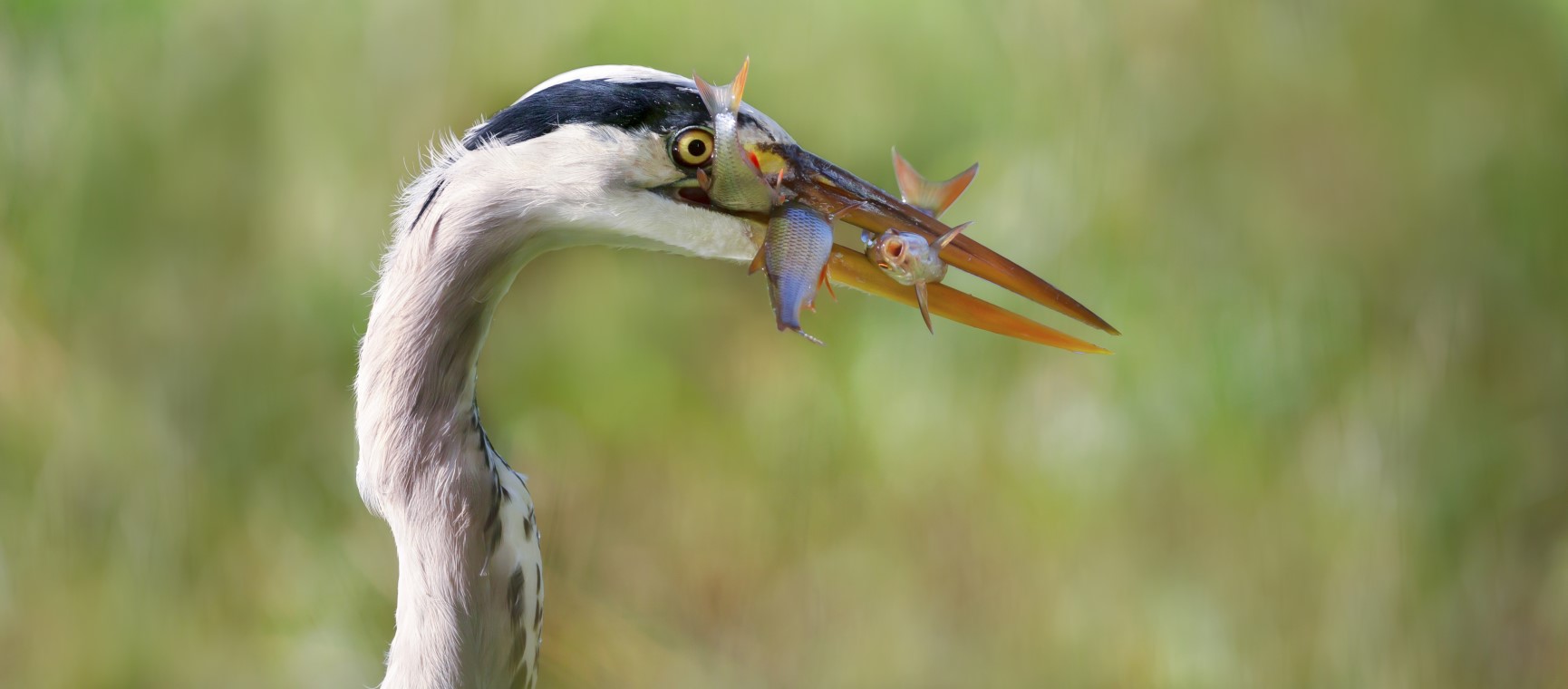

In our garden in Cornwall I never get visits from grey herons, I occasionally see them flying over looking down at our pond but they are never brave enough to drop in. However I know that in other parts of the country herons behave quite differently.
A couple of weeks ago I visited London and spent time in some of the parks. I was astonished by how tame and bold these urban herons have become and how they have adapted their behaviour to suit their environment. One example of this is their approach to catching fish.
I have always thought of herons as wading birds, choosing to walk slowly into the water from the edge, preferring shallow sloping banks. Herons in London have the problem that most suitable banks are disturbed too frequently by people so they are often forced to fish from less suitable places such as artificial islands with steep banks. To get around their difficulties the herons I watched have learned to swim like a duck, where the water is too deep, and plunge-fish where the approach is too steep.
Their plunge-fishing is a little reminiscent of a gannet but without the panache. They aren’t well-designed for this technique, so their dive is a little ungainly and their broad wings make it difficult to get airborne again afterwards but it obviously works for them.
Personally I would love to have herons visiting my garden pond, that’s because I manage our pond for wildlife so the two are not inconsistent! Grey herons will eat a huge range of prey from dragonflies to fish to small mammals and frogs. Their behaviour, like that of any predator, is natural and is a healthy part of a well-balanced ecosystem.
I can understand that some people want to keep fish in a pond and for them having a heron visiting would not be desirable. When introducing non-native fish to a pond and providing food for them an artificial ecosystem is created.
A pond stocked with fish in this way is bound to be of less value to wildlife further down the food chain, for example the fish will eat tadpoles and dragonfly larvae preventing these species from flourishing. However such a pond will act as a magnet for creatures further up the food chain, predators such as herons, mink and otters. To prevent such predation leads to a battle against nature and nature has a lot of time on its hands! So if you have a pond in which you want to keep fish what can be done to protect them?
If you haven’t yet created the pond then I would suggest digging it close to the house where herons are less likely to come; and dig it with vertical sides, even though herons can plunge-dive it will deter most. Health Warning: steep-sided ponds are dangerous for wild animals so you should put sloping logs into the water to allow hedgehogs to climb out should they fall in.
If you don’t want it close to the house then try to enclose it within shrubs where herons will be afraid to go.
You could build a wall around the pond and then fasten a net securely across the top. Personally I find netting quite offensive not just visually but practically as well. I once found a toad which had got completely entwined in a net and died simply because it was trying to get to the water.
It might be possible to cover the pond at night, this would be useful because herons like to fish at dawn, but again this would not be good for wildlife because some creatures are active at the pond overnight.
Make sure your fish have vegetation, such as water-lilies, to hide underneath but do not introduce non-native invasive species.
Decoys can be used but herons are not likely to be scared of other herons; try statues of predators and keep moving them around, but even this is unlikely to be successful in the longer term.
Garden ornaments which move or make sounds are more likely to be successful so try windmills, wind-chimes or even balloons. Again keep moving them around because herons will get used to them.
A pump and fountain to aerate the pond would be good as it causes ripples making it difficult for the heron to hunt. Similarly balls floating on the surface of the pond might move in the wind.
One interesting strategy, which won’t do any harm to wildlife, is to install a motion-activated sprinkler. This attaches to a hose and can be spiked into the ground anywhere. When something moves close by it gets a soaking, unless it scarpers quickly. These devices are designed to deter cats but will work for herons as well though I doubt they would have much effect on otters!
If all this fails and you live in London, where the herons are fearless, I recommend moving to Cornwall!
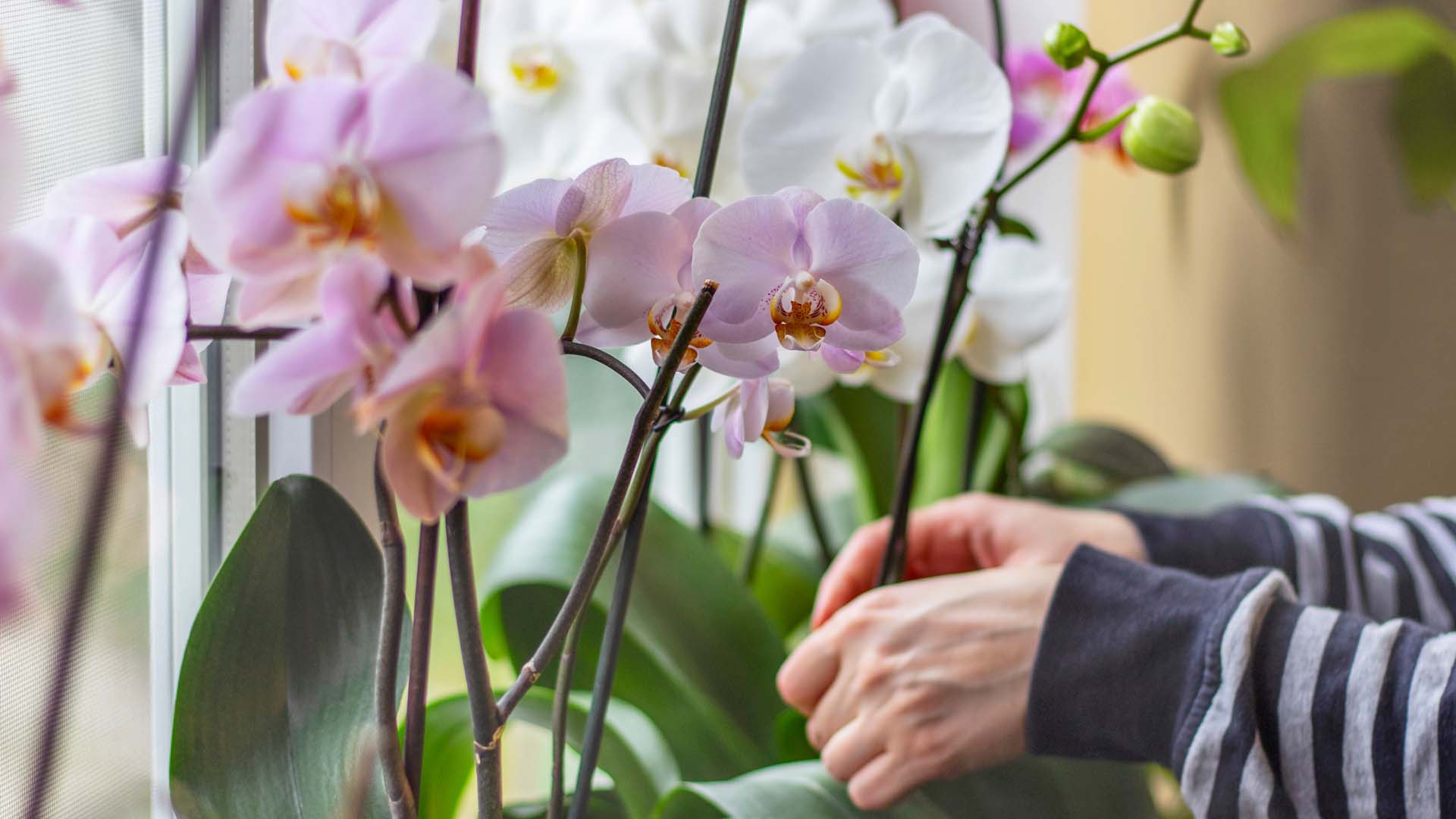
Our expert pruning and watering hacks include a top tip to keep them flowering from Alan Titchmarsh.
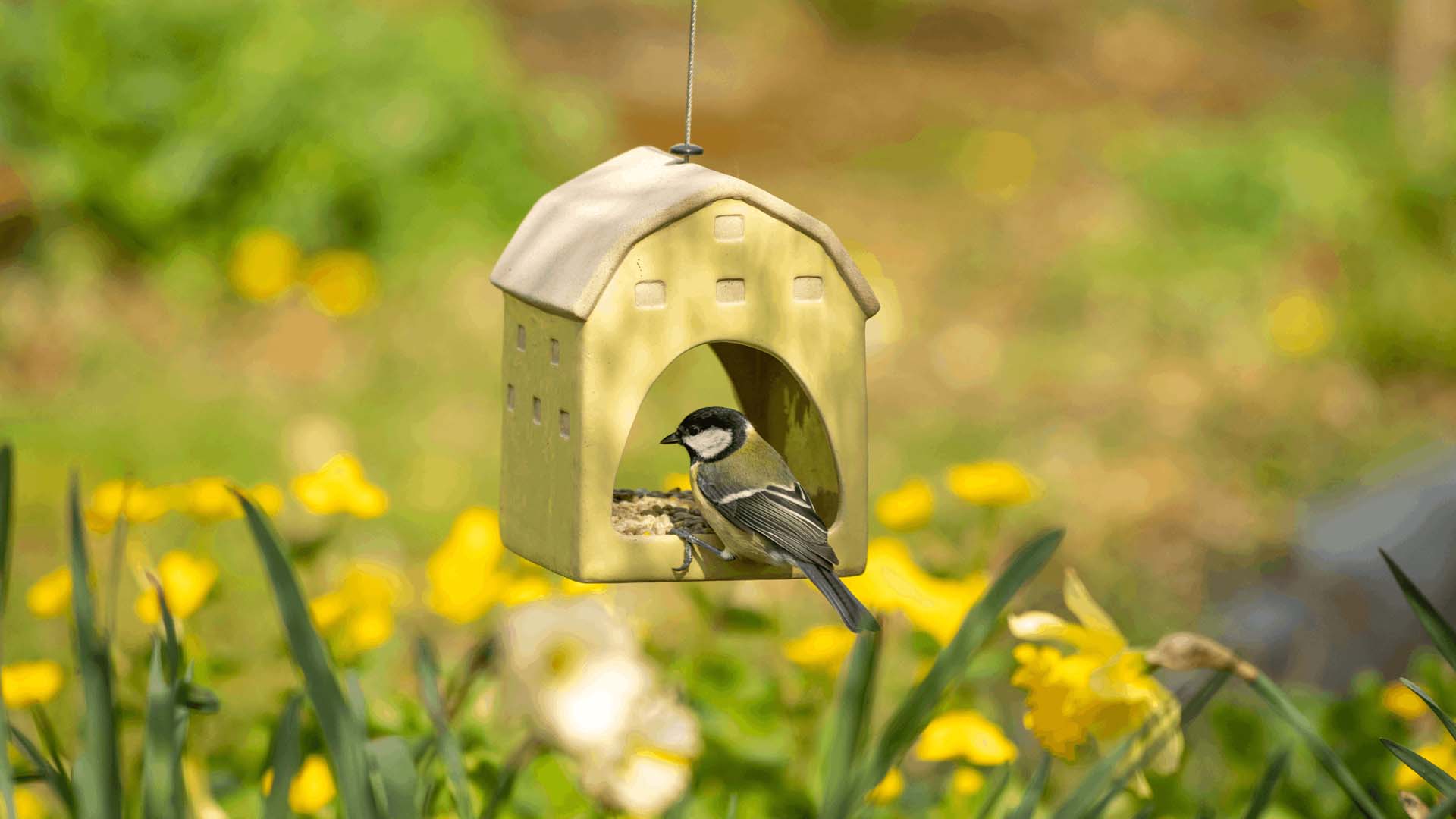
Don’t make these bird-feeding mistakes. Expert advice on how to feed birds in your garden safely.
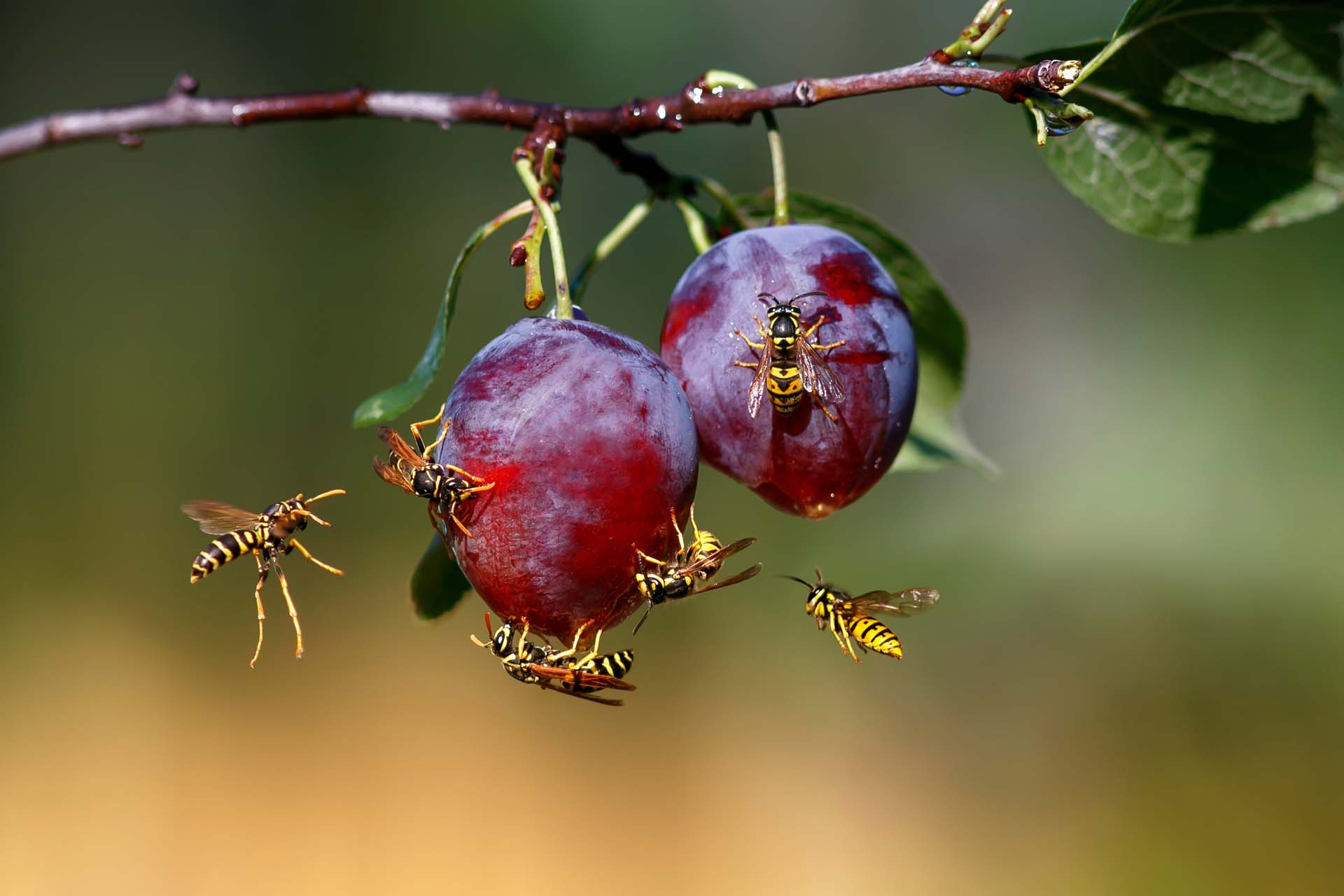
Blighted by buzzing? How to keep wasps out of your garden without harming them so you can enjoy the summer.
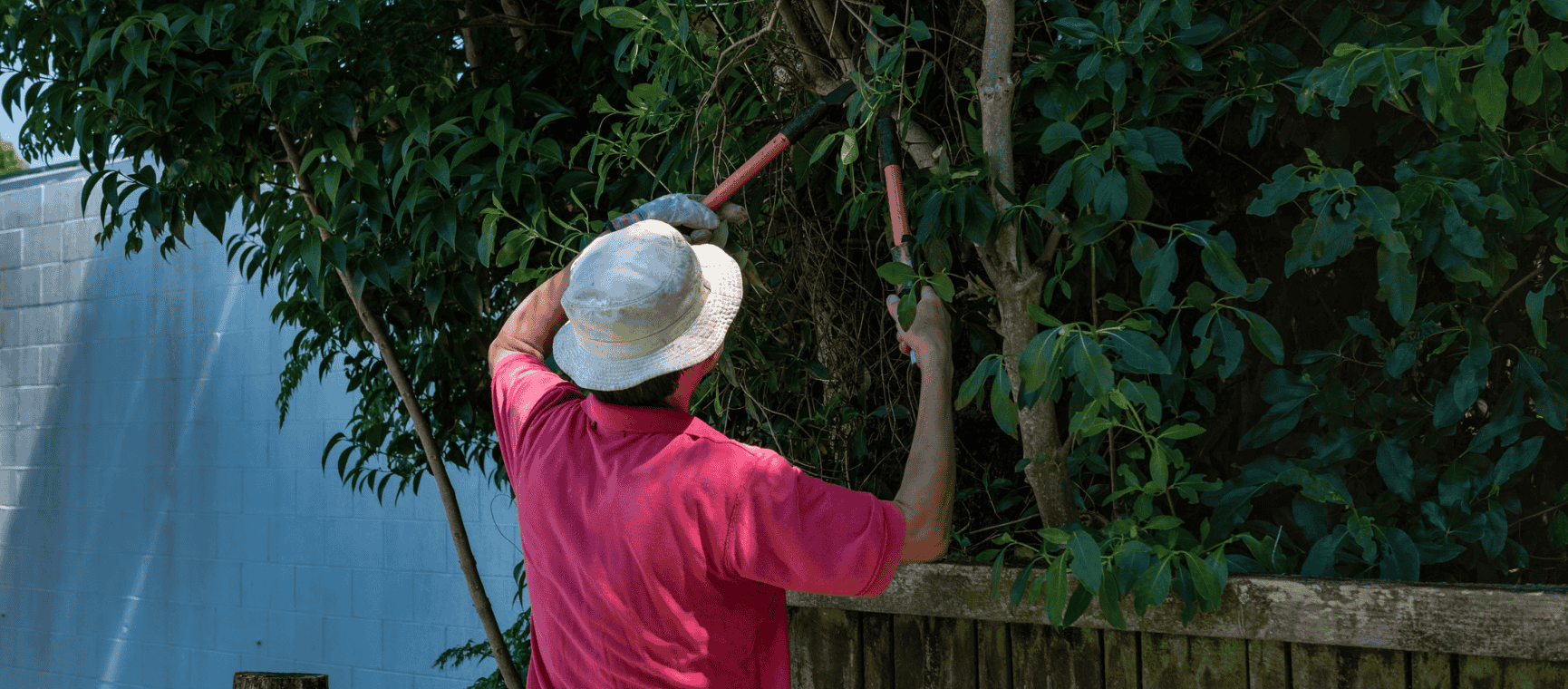
The ways you could be breaking the law in your back garden - with expert advice on how to avoid neighbour disputes, a fine or even a prosecution.
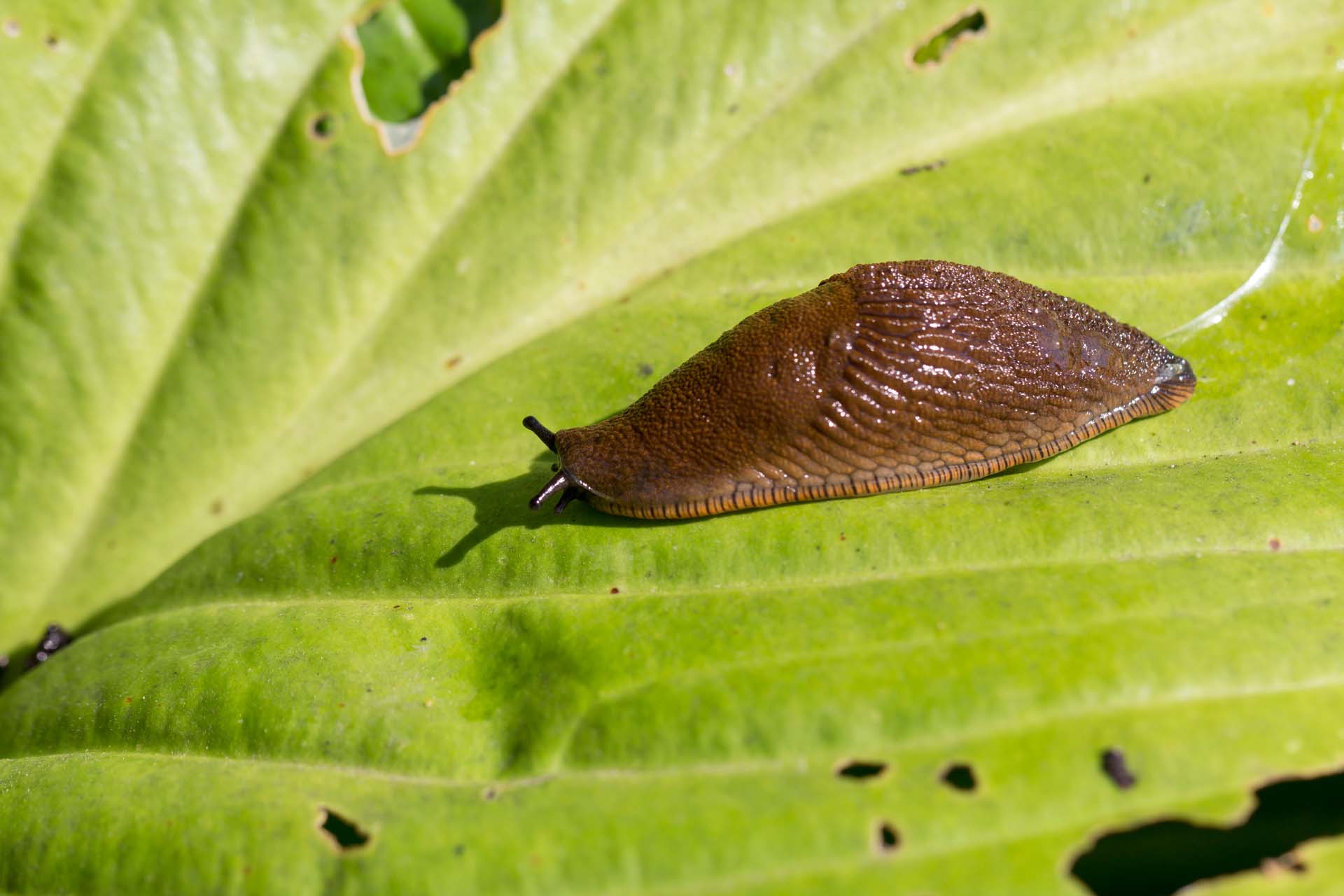
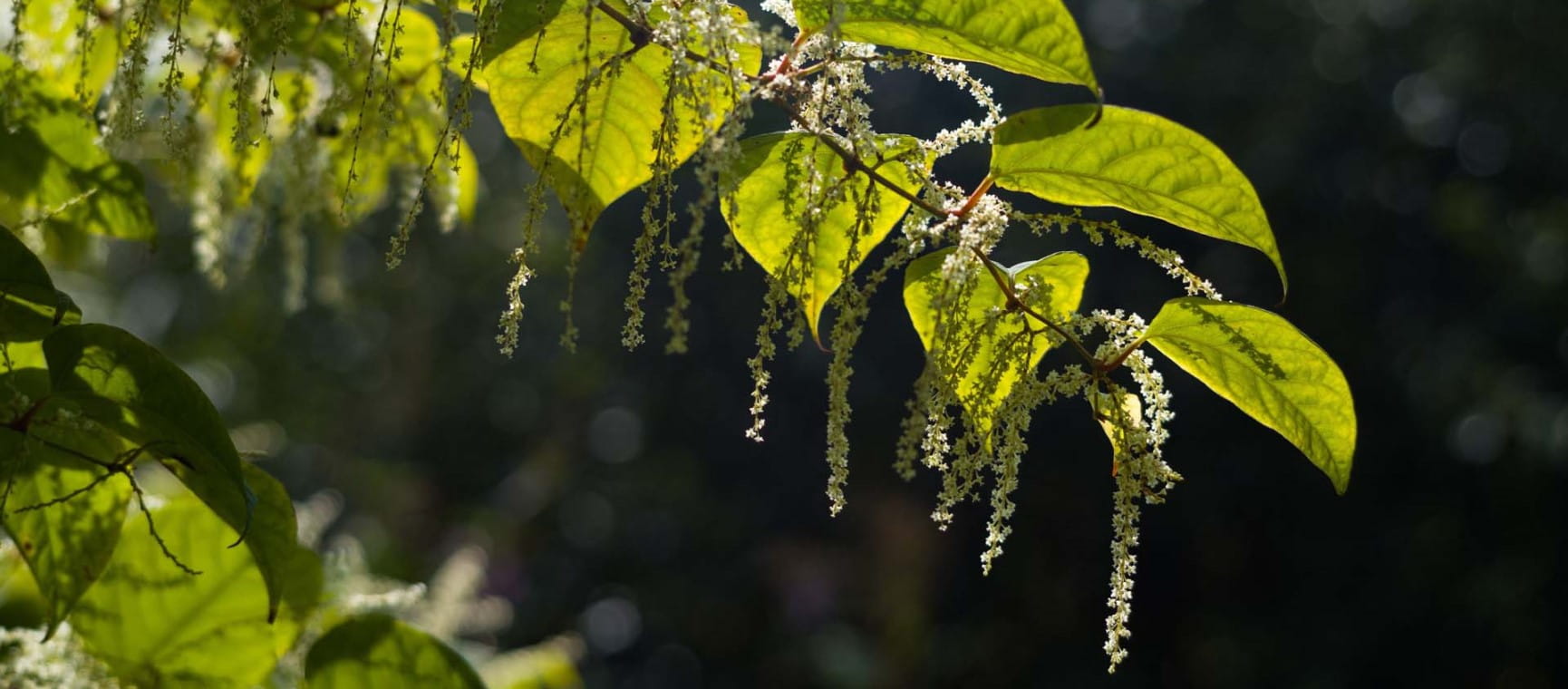
Everything you need to know about Japanese knotweed, the fast-growing plant nobody wants in their garden.